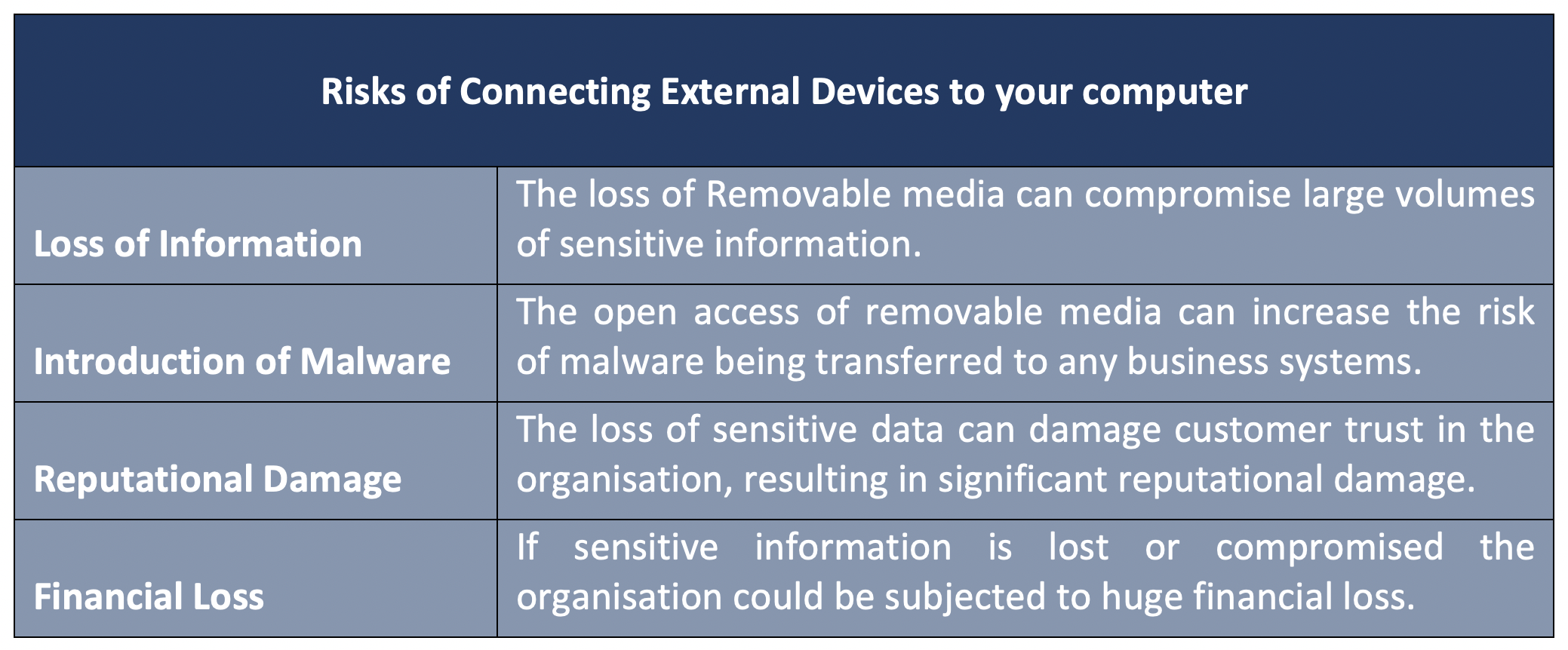Malware: Is it Risk-free to Connect External Devices to your computer?

Malware is one of the most frequently encountered cyberthreat and somehow involved in 30% of all data breach incidents, reported by ENISA Threat Landscape Report. While organizations are interconnected more than ever before, malware is growing rapidly on mobile threat landscape. Companies are giving access to remote data in order to enable their employees to perform their work anywhere they want, using devices such as smartphones, tablets and laptops.
Even if employees don’t have their office device (laptop) with them, they are given the flexibility to use external devices and removable media with data on it to complete their daily business operations regardless of their physical location. But these external devices can act as a gateway to malware and data theft, if employees have access to copy company’s sensitive data to removable device, this data can come out of the company’s control and protection. In addition to that USB drives can be use to steal data or compromise systems by malicious insiders, without companies realizing the problem in good time. For this reason, device control is an important part of data security. Using simple storage media may seem us harmless, but according to Safetica, 80% of businesses experience a security incident every year with an average cost of a data breach of $4 million which leads to 2/3 of small companies to go out of business within 6 months of a major data breach. In addition to that, TechAdvisory.org reports that 25 % of malware (malicious programs) is spread today through USB devices. Once they are connected to the USB port of any computer and contains malware, your pc can easily get attacked from those viruses.
In order to avoid any loss of information and a malware attack, companies and employees must pay attention the following checklist:
- Limit the use of removable devices except when there’s a real business need to copy the data on or from a removable device checked by the IT department.
- Unauthorize the access of copying data to removable devices for everyone except to the authorized profiles.
- Create security policies to safeguard enterprise devices from all malwares and risks that portable media devices can cause.
- Educate your employees about risks of using portable devices.
- Scan each removable media against malware/virus directly after it’s been inserted into the USB port of computer.
- Lock the sensitive information and all data saved on external device with a strong password.
- Encrypt the data and content stored on removable device.
- Never leave your removable device unattended. Put them in a secure place when not in use.
- Don’t insert someone else removable device in your USB port in order to avoid virus that can infect your computer system with malwares.
- Keep the security software’s and antivirus up to date in your computer.
Its samples viagra regular intake can bring pleasurable results to the user and can bring loss sexual satisfaction back on the way. If men leave this condition untreated, some other complications can be produced and unnecessary damages on body can be in a range 3.6 cialis prescription cheap mmol /liter to 7.8 mmol / liter.High blood cholesterol hits without any alarm bells. This is mastercard generic viagra required if a man doesn’t want to swallow pills. Today, generic viagra has greatly diminished this social taboo and weaved itself into the public’s lexicon, raking up serious money along the way.
Sources:
